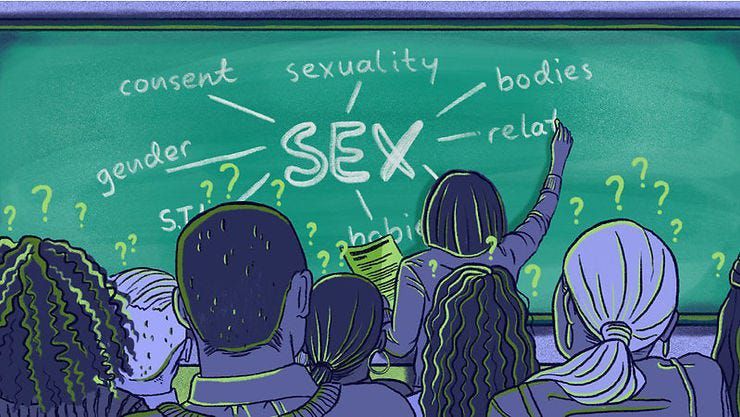
Sex education in most Nigerian schools is either non-existent or completely outdated. Many students go through school only learning that "sex before marriage is bad" or that "if you have sex, you’ll get pregnant and ruin your future."
But is that really enough?
Young people need real, honest information about sex. Not just fear-based lessons, but practical knowledge that helps them make safe and informed decisions.
Many Nigerian youths learn about sex from friends, social media, or the internet, and most of these sources are full of misinformation.
So, what should schools actually be teaching about sex?
If we want a society where young people make better choices, it’s time to talk about what schools should be teaching but don’t.
1. Consent – understanding "yes" and "no"
One of the most important things that isn’t taught in schools is consent. Many young people grow up without knowing that "No means No" and that someone should never feel forced or pressured into sex.
Schools should be teaching that consent must be clear and enthusiastic. A person who is silent or unsure is not giving consent.
Consent is ongoing. Saying yes once doesn’t mean saying yes forever. Being in a relationship doesn’t mean automatic consent. Even married people need consent before sex.
2. Safe sex
Most Nigerian schools teach abstinence-only education, which means students are simply told "Don't have sex." While abstinence is a choice, the reality is many young people still end up having sex without proper knowledge.
Schools should teach:
How condoms work and why they protect against pregnancy and STDs.
The importance of sexual hygiene (washing up before and after sex to prevent infections).
Birth control options for those who choose to be sexually active.
Ignoring these topics doesn’t stop young people from having sex, it only makes them less prepared when they do.
ALSO READ: Here's how to have safe sex
3. Porn is NOT real life
Many young Nigerians learn about sex through pornography. But porn creates unrealistic expectations about how sex works. Schools should teach that porn is scripted and edited. It does not show real relationships or real emotions, and it creates unhealthy body expectations. Not everyone looks or performs like actors in adult films.
Young people need to understand that real sex should always be safe and respectful.
If schools educate students about the dangers of relying on porn for sex education, it will help them form healthier views about intimacy and relationships.
ALSO READ: Sex Education: The safest period to have unprotected sex
4. Emotional responsibility and relationships
Sex is not just about the physical act, it has emotional and psychological effects too. Many schools fail to teach students about the emotional side of sex, causing confusion, heartbreak, regrets and even unwanted pregnancy.
What should be taught?
Sex is not a way to prove love. You don’t have to have sex to keep a relationship.
Heartbreak is real. Sex can make breakups harder, especially when one person is more emotionally invested.
Peer pressure is dangerous. No one should feel forced to have sex just because “everyone else is doing it.”
When students understand the emotional risks, they are more likely to make better decisions.
5. Body confidence and respect
Many young people struggle with body image because they are not taught about self-love and body respect. Schools should educate students on the fact that every body is different, and there is no such thing as a "perfect" body shape.
They must also emphasise the importance of respecting others’ bodies. No one should be shamed for their size, skin tone, or physical differences. It’s essential for young people to understand that puberty is a natural process and that changes such as stretch marks, acne, and body hair are completely normal.
When students learn to appreciate and respect their bodies, they are more likely to extend that respect to others.
ALSO READ: Sex Education: 5 reasons why you are not having great sex